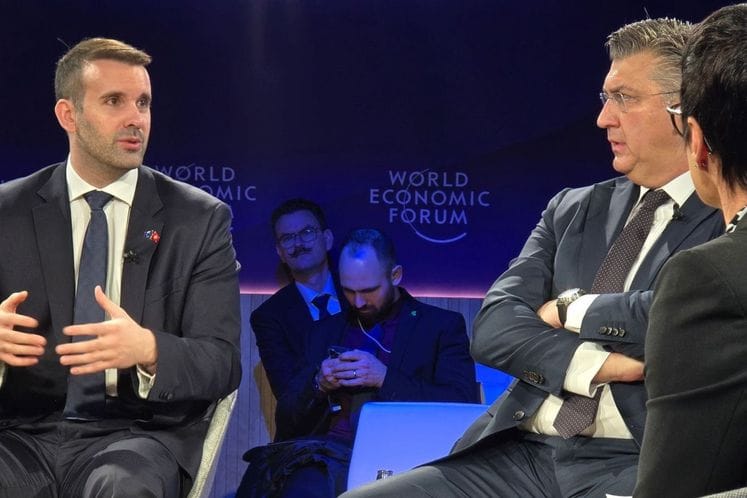- Government of Montenegro
Prime Minister Spajić participates in Davos panel ...
Prime Minister Spajić participates in Davos panel with Plenković, Kos, and Sybiha

EU leaders show unprecedented optimism for new members, Montenegro focused on building a strong system
The process of EU enlargement is gaining unprecedented political momentum, with European Union leaders displaying a strong readiness to welcome new member states. This was emphasized by Croatian Prime Minister Andrej Plenković during a panel discussion at the World Economic Forum in Davos, where Montenegro’s Prime Minister Milojko Spajić was also a participant.
This development marks a historic opportunity for countries like Montenegro, as it signals the EU’s willingness to accept candidates that meet the criteria outlined in the negotiation chapters.
Leaders within the European Council are viewing the enlargement process positively, and I must say I haven’t seen such an attitude toward new members in a long time, noted Prime Minister Plenković. He further added that leaders in Montenegro and Ukraine would not want to see any further delays in the accession process.
We wouldn’t want that either, echoed European Commissioner for Enlargement Marta Kos, who later emphasized:
When the Prime Minister of Montenegro says they aim to complete negotiations by 2026, of course, we support them and will encourage them to succeed. However, they must deliver results because in the European Union, adherence to fundamental values is non-negotiable.
Prime Minister Spajić underscored that the enlargement process is not a competition among candidates but rather a success rooted in achieved reforms and measurable outcomes.
Montenegro is not comparing itself to others in this process. We are focused on being better than we were yesterday. Our goal is to implement reforms, strengthen our relationships with EU countries, and attract more visitors from these nations, so they can witness firsthand that Montenegro is ready to be the 28th EU member state, stated Prime Minister Spajić.
This is a mutually beneficial process. Both candidates and member states gain from it, especially since negotiations are based on shared values. We want to meet the EU’s requirements for our own sake—to become a better democratic society and to build more efficient institutions. Through this process, we aim to build a strong system, he added.
Ukraine also expressed its aspirations, with hopes of opening two clusters of negotiation chapters by 2025, driven in part by the current geopolitical situation.
The European Union must grow. Without the enlargement process, the EU project cannot be considered complete, emphasized Ukraine’s Foreign Minister Andrii Sybiha.
In this context, Commissioner Kos concluded that from the perspective of enlargement, this year could become the most successful in the history of the European Union.

